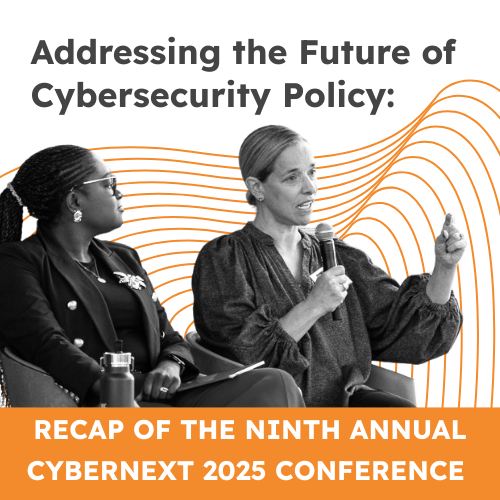Summer of AI: AI’s Role in Public Affairs
Back To News

Artificial Intelligence has come to the forefront of the digital economy, inspiring excitement and curiosity among seasoned professionals and new talent entering the industry. Whether by refining current practices or introducing new ways to think and create, generative AI has already changed how we approach our client work. While the chatter around AI feels recent, we’ve been thinking about and incorporating AI into our work for a while. We sat down with Senior Director Andrea O’Neal to discuss how she has experienced the emergence of AI and begun to consider its benefits and limitations in campaign strategy and efficiency.

Andrea O’Neal is a senior director with Glen Echo Group. Andrea has experience in positioning executives and campaigns within the Washington, D.C. landscape. She has successfully helped support the media components of strategic communications campaigns for a broad range of global brands, establishing relationships with targeted media and working to place clients into top-tier and local publications. She has an affinity for diversity and inclusion efforts and has pulled together initiatives to champion minority communities and amplify corporate community work.
How have you gotten more educated on artificial intelligence? Do you have recommendations for organizations looking to develop internal guidelines for employees who may be interested in incorporating the technology into their work?
“News, news and more news! We’re all learning about the pros and cons of AI, and tackling ways to navigate the expanded use of the technology. Because the technology is rapidly changing, it is essential to recognize any current guidance on AI use will very well change. The Glen Echo Group, with our BerlinRosen partners, crafted a working group to pull together internal guidance to ensure we utilize generative AI to benefit our clients. One of our clients, the Future of Privacy Forum, released an internal policy checklist for organizations to use as they consider AI use for their employees.
As we see the expanded use of generative AI, we must use it in a way that respects intellectual property rights and mitigates privacy risks. For us, that means making sure we’re incorporating generative AI responsibly and crafting transparent, iterative guidelines to use across our company.”
In your role, what do you see as the role of generative AI in your work? Do you have any best practices or things you are careful to avoid when using AI?
Andrea emphasized that generative AI can serve as a helpful tool in public affairs work by increasing efficiency and access to information. However, it can’t replace critical human thinking and the nuanced strategizing that is essential to this work. She explained:
“In layman's terms, generative AI is an artificial intelligence technology that can produce various types of content, including text, imagery and audio, based on other information. That means anything you put into generative AI is essentially in the ether — and the information you receive can be ‘old’ or outdated. As a best practice, never input confidential or sensitive information into these tools. And also, fact check. Generative AI can “hallucinate” information/images and sometimes can reflect society’s harmful biases — particularly to minority groups.”
What excites and concerns you about AI's capabilities across industries?
Andrea is excited about using AI, but reminds us that now is the time to ensure everyone has the opportunity to use it equitably. The more we can become comfortable with AI, the more involved we can be in shaping an AI-augmented future.
“With great power comes great responsibility, so I am watching to see how society handles the widespread power of this innovation. We must have safeguards in place when it comes to AI, immersive technology and other emerging technologies. Many of the clients we work with support a national federal privacy law — and with the advent of AI, I believe that’s becoming vital to ensure everyone’s safe use of the technology.”
How do you see AI playing a role in the upcoming elections and in particular, political advertisements, if at all?
“AI will play a leading role in the upcoming elections, and in political advertising going forward. Glen Echo Group Director Connor Farry, a key player on our cybersecurity team, recently explained the enormous impact AI is likely to have on the 2024 United States presidential election:
'As AI deepfake technology becomes even more advanced, our adversaries looking to meddle in next year's presidential election will flood the internet with fake videos, sowing distrust in voters' minds. This is certainly something that keeps security experts up at night,' he warned.
We are watching this issue closely―and we aren’t alone. The Federal Election Commission is seeking public comment on whether existing rules against fraudulent campaign advertising could potentially apply to AI-created ads. In addition, a handful of Democratic Senators introduced legislation to regulate the use of generative AI in political ads in particular. We are in the early stages of regulation in this area, but it’s clearly on policymakers’ minds.”
Do you have questions about the recent AI boom and what it means for communications and public affairs? Stay tuned to the Glen Echo Group’s Summer of AI series, where we discuss the potentials and challenges of this technology transition with industry and policy experts. For more information, check out our CEO, Maura Colleton Corbett’s op-ed on the AI hype or contact us.


.png)
.png)
.png)